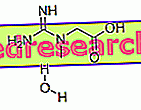COLVER ® is a drug based on carvedilol
THERAPEUTIC GROUP: Beta-blockers
IndicationsAction mechanismStudies and clinical effectiveness Usage and dosage instructionsWarnings Pregnancy and lactationInteractionsContraindicationsUndesirable effects
Indications COLVER ® Carvedilolo
COLVER ® is indicated for the treatment of essential arterial hypertension and angina pectoris.
The hypotensive effects of COLVER ® can be increased by association with antihypertensive drugs, such as diuretics.
Action mechanism COLVER ® Carvedilol
The carvedilol contained in COLVER ® taken orally, is absorbed very quickly at the gastro-enteric level, reaching the maximum plasma concentrations already after an hour from the assumption. Despite the good absorption profile, the bioavailability of this active principle never exceeds 25% of the total dose taken, given the presence of a very obvious first-pass metabolism.
Due to its lipophilic nature, in the circulatory stream the drug is found bound to plasma proteins, which act as transporters.
The carvedilol acts as a non-selective beta blocker. The important hypotensive effect, in fact, is also due to the inhibitory action exerted on the alpha 1 adrenergic receptors, expressed on the surface of the smooth muscle fibrocells of the small vessels (responsible for peripheral vasodilation); Furthermore, carvedilol performs a beta-blocker activity on cardiac adrenergic receptors, necessary to reduce the work of the heart through modulation of the pre and post ventricular load.
Studies also ascribe to carvedilol an antioxidant action, exerted through the detoxification of oxygen free radicals and probably involved in vascular protection.
Following a decidedly longer half-life (6/10 hours) compared to its beta blocker relatives, the active principle is eliminated mainly through the faeces, after hepatic glucuroconjugation.
Studies carried out and clinical efficacy
COPERNIC STUDY: THE USE OF CARVEDILOL IN CARDIAC INSUFFICIENCY
This important study, conducted on approximately 2, 300 patients, showed how the administration of carvedilol, in patients suffering from mild or moderate heart failure, could reduce the risk of death and hospitalization due to cardiovascular events by 27% compared to the control, and as much as 31% for heart failure. These data show that carvedilol can have a protective action on heart health, hindering the worsening of heart failure.
2. THE ANTIOXIDANT EFFECTS OF CARVEDILOL
In contrast to the cardioselective beta blockers used in the treatment of cardiovascular diseases, carvedilol appears to have a marked antioxidant action. Recent studies show that this active principle can intervene both in the detoxification of oxygen free radicals, and in the suppression of the production of these reactive species, guaranteeing an improvement in the patient's clinical condition.
3. CARVEDILOL IN THE METABOLIC SYNDROME
The direct involvement of carvedilol in numerous metabolic pathways has led researchers to study the effects of this active ingredient in patients suffering from metabolic syndrome. The data, quite encouraging, showed how - unlike other beta blockers - the administration of carvedilol can cause a decrease in blood pressure while maintaining the biochemical and metabolic parameters, thus reducing the cardiovascular risk.
Method of use and dosage
COLVER ® 6.25 / 25 mg tablets of carvedilol: the standard treatment for hypertension involves the administration of 12.5 mg of carvedilol in the first two days, followed by the maintenance dose of 25 mg daily in a single dose. In case of reduced therapeutic response, it is possible to increase the dosage up to a maximum of 50 mg, possibly taken in two different daily administrations; alternatively, it is possible to combine COLVER ® with an antihypertensive drug of another nature.
The same therapeutic protocol should also be used for the treatment of angina pectoris, while in the case of heart failure it is appropriate to formulate the dosage based on the severity of the pathology.
Adjustment of the dosage, more precisely a reduction in the dose, is appropriate in the case of patients receiving digital therapy, diuretics and ACE inhibitors, to subsequently provide for an increase in the dose based on the therapeutic effects observed and in any case not before two weeks (time interval necessary to maximize effects).
IN ANY CASE, BEFORE TAKING COLVER ® Carvedilolo - THE REQUIREMENT AND CHECK OF YOUR DOCTOR IS NECESSARY.
Warnings COLVER ® Carvedilolo
The warnings and precautions necessary to minimize the side effects of carvedilol are many and justified by the numerous biological reactions in which this active ingredient is involved.
Diabetic patients undergoing hypoglycemic therapy, for example, should constantly monitor glycemic levels to prevent the action of carvedilol on glucose metabolism causing glycemic decompensation, while patients suffering from ischemic heart disease, vasculopathies, even treated heart failure should monitor the renal function parameters, in order to reduce the risk of renal failure.
Ventilation capacities should be monitored by a physician during carvedilol therapy in patients with bronchospasm and breathing difficulties. In the event of a deterioration of this function, therapy should be suspended by gradually reducing the dosage used.
In the case of surgical operations, it is advisable to notify the anesthesiologist in due time, in order to avoid the use of anesthetics with marked negative inotropic activity and thus reduce side effects, such as severe bradycardia and hypotension.
In hypersensitive patients, carvedilol, like all other beta-blockers, could increase the sensitization to allergens, with the consequent risk of anaphylactic reactions.
Pheochromocytoma, Prinzmetal's angina and other particular pathological conditions, could determine an increase in the side effects of carvedilol.
The presence of some side effects such as headache and dizziness, could reduce the patient's normal perceptive abilities, making it dangerous to use machinery and drive vehicles.
PREGNANCY AND BREASTFEEDING
Although there are no studies in the literature regarding the use of carvedilol in pregnancy, the haemodynamic effects (reduced placental perfusion) and metabolic (hypoglycaemia) associated with the use of COLVER ® could harm the fetus and compromise its normal growth. Furthermore, given the presence of the active ingredient in breast milk, it is not recommended to take this drug either during pregnancy or while breastfeeding.
Interactions
The carvedilol, given the important antihypertensive effect, could easily interact with other drugs with hypotensive effect, such as diuretics or calcium channel blockers, resulting in an enhancement of this activity. In this case, it is advisable to adjust the dosage in order to optimize the therapeutic efficacy and minimize the occurrence of side effects.
In patients suffering from heart failure and undergoing digoxin therapy, concomitant administration of carvedilol could result in increased plasma concentrations of digoxin, making it necessary to monitor digoxin levels.
Furthermore, due to the masking effect of the typical symptoms of hypoglycaemia, it may be necessary to adjust the dose of hypoglycemic agents used.
The concomitant administration of rifampicin and mixed function oxidase inhibitors could result in increased plasma levels of carvedilol, with unpredictable biological effects.
The carvedilol could finally interact with anesthetics with negative inotropic activity, enhancing the effect and increasing the risk for the patient's health.
Contraindications COLVER ® Carvedilol
COLVER ® is contraindicated in case of severe or inadequately treated heart failure, in case of bronchopneumopathy with bronchospasm, abnormal liver function, asthma, cardiogenic shock, severe bradycardia, accentuated hypotension and in case of hypersensitivity to one of the its components.
Undesirable effects - Side effects
The side effects described for COLVER ® seem to be generally transient and clinically irrelevant. Among the most common adverse reactions it is possible to describe: dizziness, bradycardia, edema, nausea, diarrhea, vomiting, changes in vision, headache and hyperglycaemia.
In predisposed patients the appearance of asthma, dyspnoea, hypercholesterolemia, thrombocytopenia, mood changes, reduction of cardiac function and skin reactions in case of hypersensitivity has also been observed.
Despite the numerous side effects described, it was only in a few cases that it was necessary to suspend therapy.
Note
COLVER ® can be sold only under medical prescription.
The use of COLVER ® in athletes, in the absence of therapeutic necessity, to reduce the physiological response to stress and the related symptoms (tremor of the limbs, increase in arterial pressure, increase in emotional tension etc.), is a DOUBLE practice.



